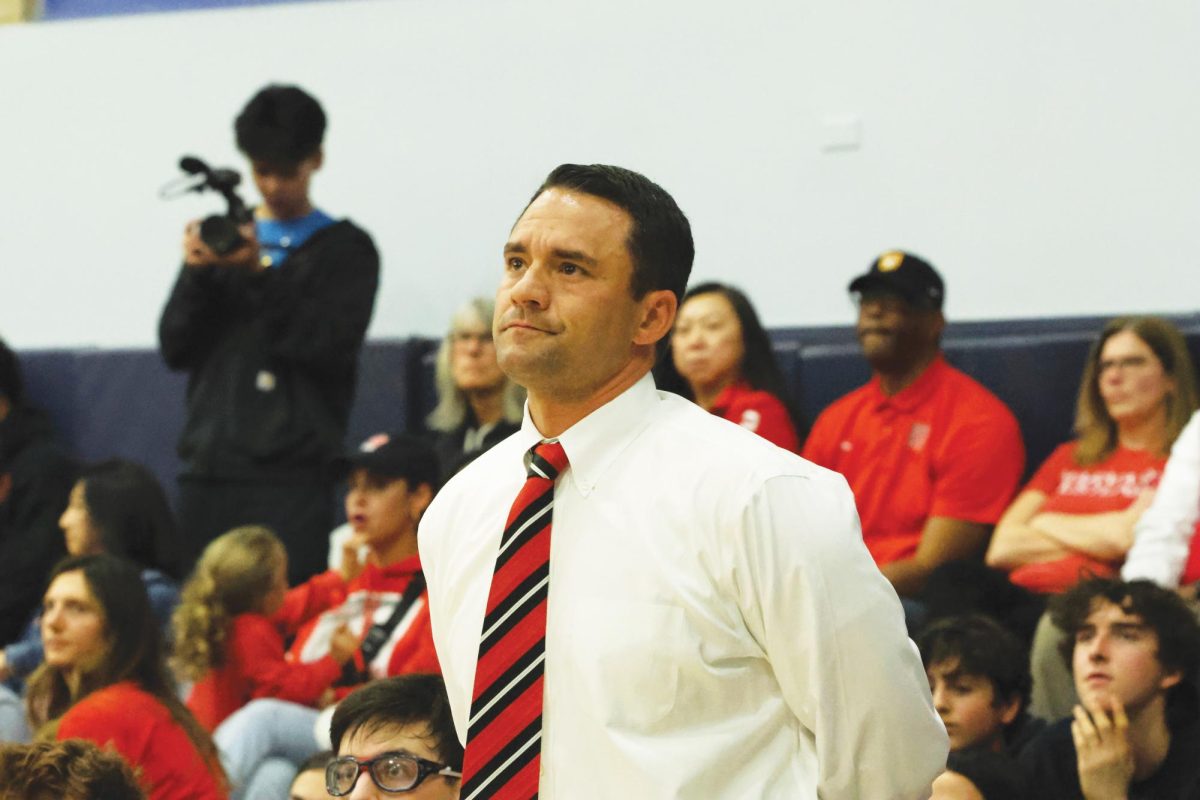By Erin Moy
Carleigh Coyne â10 has been getting intimate with the White House. She knows the Cabinet membersâ positions on hot-button topics, has overheard many private conversations between the President and his advisors and can navigate the halls of the West Wing adeptly.
Moreover, she has learned all of this over the course of a few weeks.
No, Coyne does not work with the Obama administration; she has been following President Josiah Bartlettâs administration on the now-cancelled television show “The West Wing.”
Coyne began watching the show after her AP United States Government and Politics teacher showed an episode to her class.
“It was really good,” Coyne said. “I got obsessed and now I watch it all the time.”
Thalia Bajakian â10 had a similar reaction to viewing an episode in her AP U.S. Government and Politics class.
“We had watched an episode in class and I really wanted to know what would happen next,” Bajakian said. “So, I watched two and a half seasons over winter break and forgot about college applications.”
AP U.S. Government and Politics teachers David Waterhouse and Francine Werner started incorporating “The West Wing” into their classrooms in 2005 and had the opportunity to integrate more of the show into their lectures when the course was expanded from one semester to a full year in 2006, Werner said.
Viewings of “The West Wing” started to expand studentsâ interest in politics, Waterhouse said. He hopes that the show [will] inspire students with “idealism and the idea that politics and government are important, not just corrupt and cynical,” he said.
“The West Wing,” which aired from 1999 to 2006, chronicled both the professional and personal lives of the individuals who made up the fictional President Bartlettâs administration.
However, “The West Wing” also covered a wide variety of relevant political and legislative issues that, Werner said were often “ripped from the headlines.”
The show was thought of by many viewers as much more than a primetime political soap opera.
Along with the success of “The West Wing” in televisionâthe show holds the record for most Emmys won in a single seasonâboth Werner and Waterhouse, and numerous critics, believe that “The West Wing” is an accurate representation of how American government works.
“The value of this series is that it brings the mechanics of government to life,” Waterhouse said. “You see people who are enjoyable to watch functioning as people in government actually do.”Â
“The viewer gets to learn and be entertained at the same time,” he said. “Clearly, âThe West Wingâ is an idealized version of reality, but it deals with many important political issues that we discuss in class. Virtually every episode deals with four or five important issues that are related to AP U.S. Government and Politics. So, it really can help reinforce [studentsâ] knowledge and understanding.”
Barrett Meister â10, another fan of “The West Wing,” also sees a helpful aspect of watching the show.
“It incorporates much of the goings-on in government and therefore is a fairly useful tool for the public to understand their government more,” Meister said.
“The West Wing” was cancelled four years ago. However, both Waterhouse and Werner have seen the interest in the show grow over the years.
While Werner attributes the growing buzz to the growth in the number of AP U.S. Government and Politics classes, Waterhouse said he feels that interest in the show has peaked this year due to “Obama activating young peopleâs interest in politics during the last couple years.”
Students themselves see a myriad of reasons for being hooked on “The West Wing.”
“I remember watching it when it actually was on TV and since I was too young to understand at that time, now with my new wealth of knowledge, I can make sense of it all,” Meister said. “Only a few special shows make the transition from a filler show to watch into one of the more coveted regularly watched slots.”
“Itâs a perfect combination of government and personal drama that makes everything learned in AP Government much more tangible. Rather than just learning theory, West Wing allows me to see everything as it is practiced,” Bajakian said. “Because everything is so hyped up in the show and many things are exaggerated, it makes typical government process much more exciting.”





































